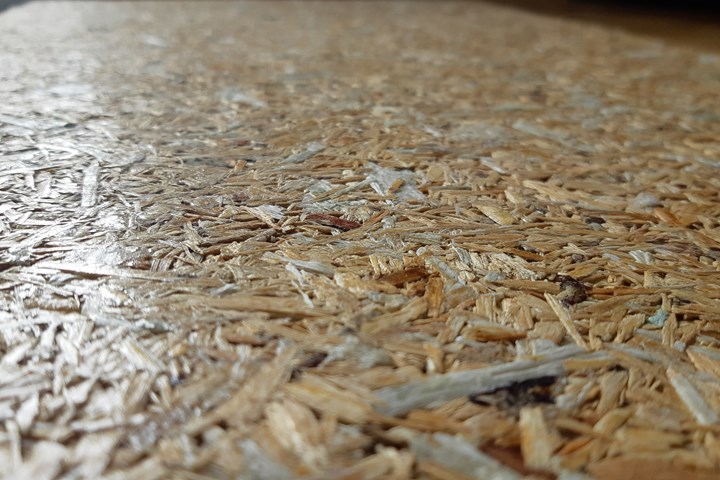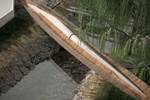Anmet launches chipboard panels made from recycled composites
Starting from university R&D collaborations, the Polish recycling company has patented a shredding and manufacturing process for wood-replacement chipboards for use by the construction industry.

Photo Credit: Anmet
Recycling company Anmet (Szprotawa, Poland), which in recent years has developed furniture and pedestrian bridge applications as a solution for repurposing decommissioned composite wind turbine blades, announces that its latest product is a patented process for producing chipboard panels made from recycled end-of-life (EOL) composites, for use by the construction industry.
Andrzej Adamcio, owner of Anmet, explains that the company’s early wind blade repurposing solutions have been aimed at drawing attention to the problem of what to do with composite parts at their EOL and showing several possibilities for processing these EOL blades. The company has created a working business based on the sale of furniture and engineering objects made of decommissioned wind blades, and has led other companies globally to develop similar solutions.
However, Adamcio notes that mechanically repurposing blades as bridges or furniture can only be done at relatively low volumes.
Seeking a higher-volume mechanical recycling solution, Anmet has also worked on independent research on the development of a process to shred EOL composite parts and use them to manufacture chipboard as a wood replacement.
This research has been done in collaboration with the Forestry and Wood Technology department at the University of Life Sciences (Poznań, Poland) led by Prof. Dr. Hab. Radosław Mirski; and the wood materials physical and mechanical testing center at Koszalin University of Technology (Poland), led by Dr. Eng. Wiesława Szada-Borzyszkowski and Dr. Hab. Eng. Tomasz Rydzkowski.
Resulting from this research, Anmet has patented a production process and chipboard plates manufactured in part from shredded composites, from 1-99% of the finished product by weight.
Anmet says these panels have many advantages compared to standard chipboard plates:
- The ability to be recycled multiple times
- Increased strength
- Reduced water absorption
- Increased fire resistance
- No need to provide a drying process during manufacture, as in the case of wood chips
- Reduction of wood consumption.
According to Anmet, the construction industry has already expressed interested in implementing the recycled composite chipboard panels, and talks are currently underway with chipboard manufacturers to commercialize the patent. The company is also open to new partnerships aimed at commercialization and further development.
Related Content
-
Plant tour: Joby Aviation, Marina, Calif., U.S.
As the advanced air mobility market begins to take shape, market leader Joby Aviation works to industrialize composites manufacturing for its first-generation, composites-intensive, all-electric air taxi.
-
Manufacturing the MFFD thermoplastic composite fuselage
Demonstrator’s upper, lower shells and assembly prove materials and new processes for lighter, cheaper and more sustainable high-rate future aircraft.
-
Bio-based acrylonitrile for carbon fiber manufacture
The quest for a sustainable source of acrylonitrile for carbon fiber manufacture has made the leap from the lab to the market.

.jpg;width=70;height=70;mode=crop)













